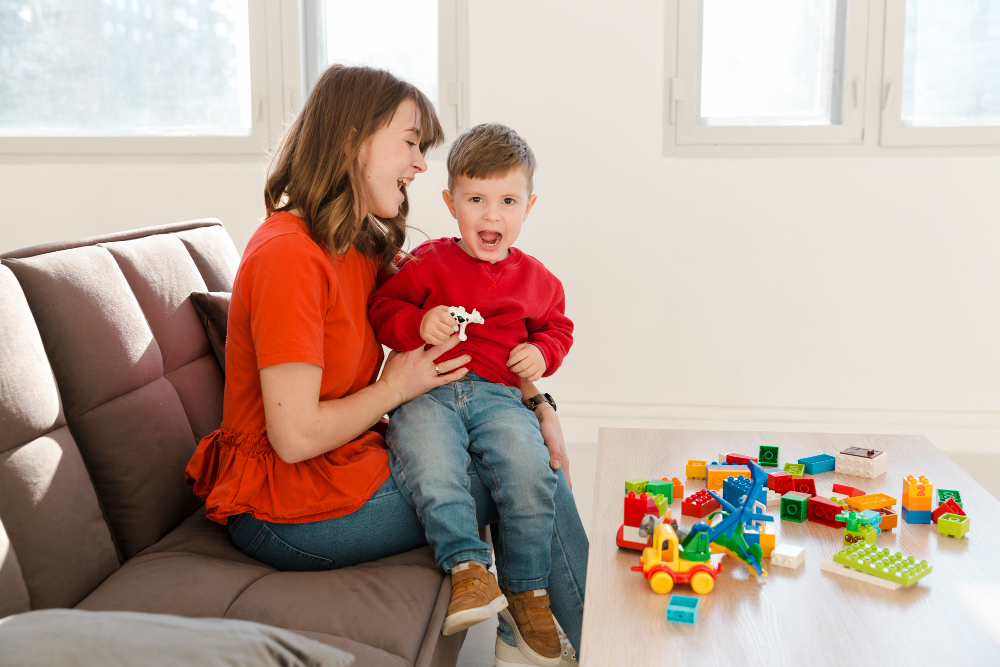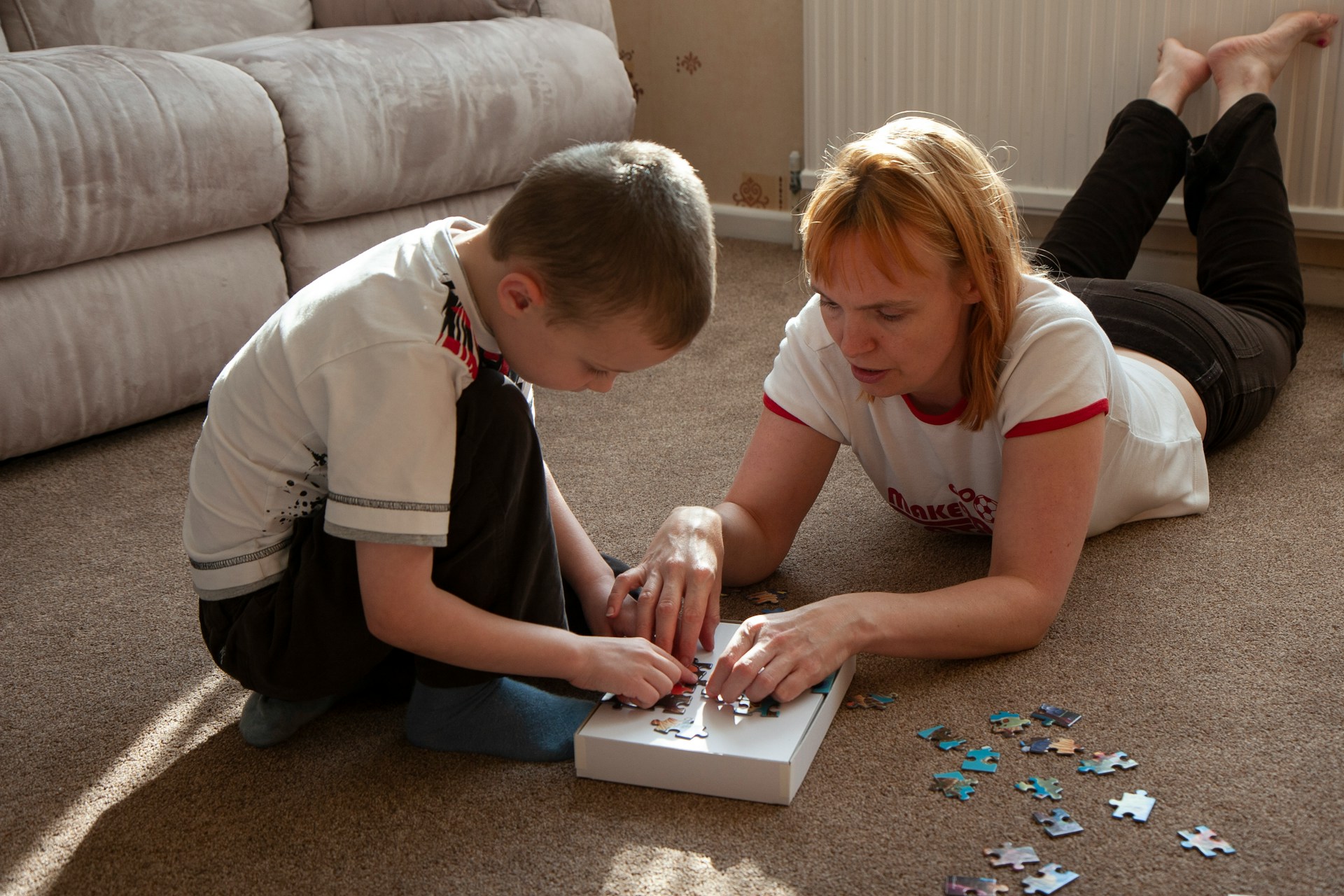
How to Build Confidence in Children with Autism Using ABA Strategies
Empowering Autistic Children Through Confidence-Building Strategies
Fostering Self-Esteem and Independence in Children with Autism
Building confidence in children with autism is essential for their emotional, social, and developmental growth. It enables them to navigate life's challenges, engage confidently with peers, and develop a sense of independence. Applying evidence-based ABA strategies while focusing on individual strengths and interests can significantly enhance their self-esteem, contributing to a happier, more fulfilling life.
Understanding the Significance of Confidence in Autism

Why is it important to build self-esteem and confidence in children with autism?
Fostering self-esteem and confidence in children with autism plays a crucial role in supporting their overall growth and development. Confidence helps children navigate social interactions, tackle challenges, and become more independent in daily life. When children recognize their strengths—such as particular talents, hobbies, or interests—they are more likely to develop a positive self-image.
Encouraging their passions, like a love for dinosaurs, trains, or animals, can boost their feelings of competence. Strategies such as positive reinforcement, creating personalized activities like strengths books or cards, and celebrating small accomplishments are effective in nurturing their self-esteem.
Building both explicit self-esteem—what children consciously believe about themselves—and implicit self-esteem—deep-seated feelings of self-worth—is beneficial. A strong sense of confidence can reduce risks of mental health issues like anxiety or depression, which can sometimes accompany autism.
Tools like visual supports, social stories, and opportunities for success help children understand their abilities and promote resilience. Ultimately, prioritizing confidence and self-esteem creates a foundation for emotional well-being, social skills, and overall quality of life.
How does confidence influence social interactions and independence?
Confidence enhances a child's ability to engage in social settings and develop meaningful relationships. Children who believe in their abilities are more willing to participate in peer interactions and social skills groups. This participation can reduce social anxiety and improve communication.
Moreover, when children feel competent, they are more likely to take on responsibilities such as chores or decision-making tasks. These experiences foster independence and self-reliance.
Creating environments that celebrate individual differences and successes encourages children to feel valued. As they gain confidence through structured routines and positive experiences, they become more resilient in facing everyday challenges.
Why is nurturing strengths and talents essential?
Recognizing and building on each child's talents, interests, and strengths is a vital aspect of confidence development. Many children with autism have unique interests, like animals or building projects, which can be leveraged as learning tools.
Using these interests in educational activities—for example, counting with cars or trains, or reading about animals—makes learning engaging and meaningful. Personal activities such as drama classes, physical activities, and social stories tailored to their strengths can also encourage growth.
This targeted approach helps children see themselves as capable and successful, reinforcing their self-esteem. Celebrating their abilities fosters a positive self-image and motivates continued development.
| Aspect | Focus Areas | Benefits |
|---|---|---|
| Self-esteem building | Strengths recognition, positive reinforcement | Better emotional health, resilience |
| Social skills development | Peer interactions, social stories | Enhanced confidence, social integration |
| Independence | Chores, decision-making | Greater autonomy, pride |
| Emotional well-being | Self-awareness, coping skills | Reduced anxiety, improved mood |
Core ABA Techniques for Supporting Confidence

What are ABA (Applied Behavior Analysis) strategies for supporting children with autism?
ABA, or Applied Behavior Analysis, is a research-backed approach that uses specific techniques to help children with autism develop essential skills and increase positive behaviors. This method involves understanding each child's unique needs and applying strategies like positive reinforcement, prompting, and fading to encourage learning and independence.
Central to ABA are techniques such as breaking down complex skills into smaller steps (task analysis), teaching those steps through a process called chaining, and demonstrating desired behaviors via modeling. Therapists also use redirection to guide children toward appropriate actions and reinforce progress through continuous feedback.
ABA programs are highly personalized, focusing on areas like communication, social skills, self-care, and academics. Data collection plays a vital role, allowing therapists to monitor progress and adjust techniques as needed. The overall goal of ABA is to build confidence, reduce problematic behaviors, and foster independence, supporting children in thriving across environments such as home, school, and social settings.
How does targeted skill development support confidence?
Using detailed task analysis and chaining helps children master skills step-by-step. For example, learning to brush teeth or dress involves several smaller actions. Teaching these actions gradually and pairing them with positive reinforcement boosts their sense of achievement.
Visual supports like schedules, charts, or social stories, along with clear communication methods, help children understand expectations and navigate routines confidently. These tools make learning accessible, promote independence, and reduce anxiety.
How is progress tracked and adjusted?
Therapists use behavioral data tracking to monitor each child's progress precisely. By recording behaviors and skill acquisition, they can identify what works best and modify programs accordingly. This ongoing assessment ensures that interventions remain relevant, efficient, and supportive of building confidence.
What role do social and communication skills play?
Enhancing social interactions and communication skills is central to ABA. Techniques such as role-playing, modeling, and structured social groups help children practice and develop these skills, which are crucial for building friendships and asserting themselves.
All these strategies culminate in creating a supportive, engaging environment where children can build confidence, master new skills, and develop resilience. When children see their own progress and feel capable of overcoming challenges, their self-esteem continues to grow, laying a strong foundation for future successes.
Guiding Caregivers and Educators in Confidence-Building Approaches

How can caregivers and educators support confidence development in children with autism using ABA techniques?
Supporting children with autism in building confidence involves a combination of positive strategies and tailored approaches. ABA therapy plays a crucial role by emphasizing positive reinforcement, helping children recognize their strengths, and celebrating their achievements.
Caregivers and educators should focus on identifying and nurturing each child's unique talents and interests. Incorporating passions, such as trains or animals, into learning activities can increase engagement and a sense of competence. For example, using cars for counting lessons or animals for reading activities makes learning enjoyable and meaningful.
Creating a structured environment with clear routines reduces anxiety and provides stability, allowing children to feel more secure and confident in exploring new skills. Setting small, realistic goals and recognizing even minor successes encourages children to persist and view themselves as capable.
Using visual supports like social stories or strengths cards helps children understand expectations and recognize their abilities. Building independence through opportunities such as chores or decision-making fosters pride and self-reliance.
Social interactions are essential. Organizing peer activities and social groups helps children develop social skills in a safe context, boosting their confidence in social settings. Teaching self-regulation techniques, including positive self-talk and mindfulness exercises, equips children to handle challenges and manage negative feelings effectively.
Lastly, fostering a supportive, accepting environment that celebrates individuality and resilience helps children develop a positive self-image. Caregivers and educators who model healthy self-esteem behaviors and involve parents through coaching reinforce these strategies, leading to lasting confidence growth in children with autism.
Leveraging Strengths and Interests for Self-Esteem Boost

How can strengths and interests of autistic children be identified and utilized to enhance their confidence?
Recognizing what children with autism excel at and enjoy is a crucial step in boosting their self-esteem. This process often begins with careful observation of their behaviors, preferences, and skills, both at home and in educational settings. Collaborating with caregivers, teachers, and therapists provides a well-rounded view of the child’s talents and passions.
Once their interests are identified, these can be woven into daily routines and learning activities to make experiences engaging and relevant. For example, if a child loves trains, counting exercises can incorporate toy trains or train pictures. Water can be used for sensory activities or self-help skills, and animals may serve as topics for reading or social stories. Using visual supports like strengths books and cards, social stories tailored to their interests, and personalized routines emphasizes their abilities and encourages participation.
Celebrating their achievements is essential. Verbal praise, tangible rewards, and celebratory routines reinforce their accomplishments and motivate further effort. Setting small, achievable goals aligned with their interests helps children experience success regularly, which fosters confidence.
Building resilience and a positive self-image occurs as children see themselves as capable in areas they enjoy and excel in. These strategies not only promote mastery but also enhance social engagement as children become more comfortable sharing their passions with peers.
Ultimately, focusing on individual talents and interests supports children’s emotional development, encourages persistence in learning, and cultivates a love of discovery—key components in developing their self-esteem and resilience.
The Long-Term Impact of ABA on Confidence and Independence

How does ABA therapy improve social, communication, and daily living skills?
ABA therapy is designed to break down complex skills into manageable steps, which makes learning easier for children with autism. Through structured routines and positive reinforcement, children develop better communication skills—both verbal and non-verbal—like initiating conversations, making eye contact, and understanding social cues. Additionally, ABA helps children learn essential daily routines such as dressing, grooming, and preparing simple meals. This focus on skill-building fosters a sense of independence and self-efficacy, allowing children to navigate daily challenges confidently.
In what ways does ABA reduce problematic behaviors and motivate children?
A core part of ABA involves identifying and reinforcing positive behaviors while reducing negative ones such as tantrums, aggression, or self-injury. Using clear, consistent reinforcement strategies motivates children to choose appropriate behaviors. Over time, this reduces behaviors that interfere with learning and socialization, creating a more positive environment. As children experience success and mastery, their motivation and self-esteem grow, encouraging continued progress in various areas of life.
How does ABA support emotional regulation and the development of a positive self-image?
ABA incorporates teaching emotional regulation techniques, such as relaxation strategies and self-awareness skills, helping children understand and manage their feelings effectively. Recognizing their emotions and learning coping skills promote resilience and a more stable self-image. As children gain control over their reactions and see their efforts lead to success, their confidence and self-worth increase, contributing to a healthier self-perception.
What role does ABA play in preparing children for independence and adult life?
| Skill Area | Description | How ABA Supports |
|---|---|---|
| Daily routines | Tasks like dressing, cooking, and cleaning | Practice through structured routines and reinforcement |
| Social interactions | Building friendships, communicating effectively | Role-playing and social skills training |
| Problem-solving | Navigating new challenges and making decisions | Step-by-step approach and skill reinforcement |
| Self-management | Managing emotions and impulses | Teaching self-control and emotional awareness |
These strategies cultivate independence, crucial for transitioning into adulthood confidently.
What evidence shows the long-term effects of ABA therapy?
Research and success stories highlight that children who undergo intensive ABA therapy over several years show lasting improvements. They tend to develop better social skills, maintain increased communication abilities, and demonstrate greater emotional stability. These benefits often lead to decreased reliance on external support in adulthood, such as reduced need for interventions or special services. Parents and therapists report remarkable transformations, with many individuals gaining meaningful independence and positive self-identity, proving the value of early and consistent ABA intervention.
Supporting Confidence Growth Through Structured Approaches
Building confidence in children with autism requires a comprehensive, individualized approach that taps into their strengths and interests, fosters social connection, and promotes independence. ABA therapy plays a pivotal role in this process by teaching essential skills through positive reinforcement and structured routines. When caregivers and educators actively involve children, celebrate their successes, and create supportive environments, they lay a foundation for lasting self-esteem and resilience. Over time, these strategies help children with autism not only develop confidence but also gain the independence and social skills needed for a more autonomous and fulfilling life. Emphasizing a strengths-based, nurturing approach ensures their emotional well-being and opens pathways to achievement and connection.
References
- Building Self-Esteem in Kids with Autism - Childwise ABA
- Building confidence: autistic children and teenagers
- Tips for Developing Healthy Self-Esteem in Your Child with ...
- Building Confidence in Kids with ABA Therapy
- Building Independence and Confidence in Kids
- Addressing Self-Esteem and Confidence in Children with ...
- How To Build Good Behavior and Self-esteem in Children
- Understanding ABA ASD: Key Benefits for Autism Treatment
- How To Increase Self-Confidence In Children With Autism


Partner with us on your child's journey
Milestone Achievements offers evidence-based ABA therapy to help children with autism reach their full potential. Together we’ll set meaningful goals and celebrate progress every step of the way.
Start ABA Services Today





